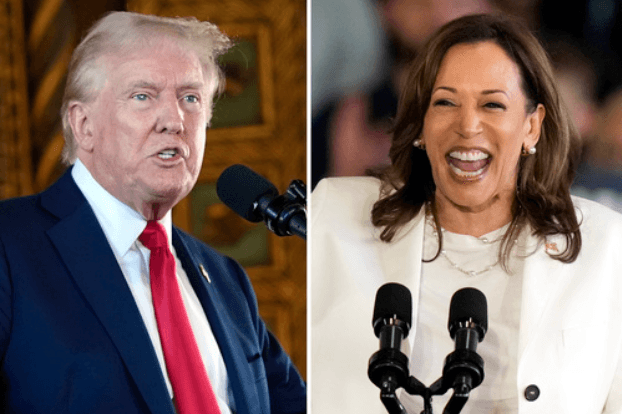Exclusive: RealClearOpinion Poll, A 2024 Election Postmortem
After a whirlwind 2024 election filled with twists and turns, Donald Trump has once again taken the presidency. But as the dust settles, a new poll from RealClearOpinion Research/Emerson Polling offers a revealing look back at the 2024 election – unpacking why Kamala Harris fell short and what lessons both parties can take into the future.
The poll, conducted with 1,350 U.S. voters in January before Trump took office, found that 59% of voters believe the country is headed in the wrong direction. On the issue of the Biden presidency overall, 55% said it was more of a failure than a success.
This dissatisfaction with the direction of the country proved to be a significant problem for Harris, who had to balance not disrespecting Biden’s decisions as president while also trying to distance herself from his unpopular policies at the time. The separation from the negatives of the Biden presidency ultimately didn’t materialize, as 72% said they would have viewed a Harris presidency as a continuation of Biden’s administration.
Comparatively, people started looking at Trump’s first presidency with slightly rose-tinted glasses. According to the poll, 53% viewed Trump’s first presidency as more of a success than a failure, even though around the 2020 election, he had negative favorability ratings, with only 41.8% finding him favorable and 54.6% unfavorable on Election Day in 2020.
Election Year Events
The 2024 election wasn’t just a battle of policies and personalities – it was a rollercoaster of unexpected twists that constantly reshaped the race. One of the most explosive moments came on May 30, when Donald Trump was convicted on 34 counts of falsifying business records in the first degree.
Democrats hoped the guilty verdict would deal a decisive blow to his campaign, but the reality was more complicated. According to the poll, while 36% of voters said the conviction made them more likely to support Harris, it also fueled Trump’s base, with 23% saying it increased their support for him – likely driven by the belief that the charges were politically motivated.
Then came the first debate between Trump and Biden, which significantly shook up the election. After the debate, 31% said they were more likely to support Trump, while only 14% said the same of Biden. Trump’s lead in the RCP Average post-debate jumped from 1.5 points to three points before Biden dropped out. Contributing to that jump was also the first assassination attempt on Trump, which 22% said made them more likely to vote for him.
The later debates had much smaller effects, with less clear winners than the first debate. Still, the vice-presidential debate on Oct. 1 was a good showing for Vance, with 33% more likely to support Trump and only 24% more likely to support Harris afterward.
Trends Going Forward
Whether the next Republican presidential candidate faces the same challenges as Harris – being tethered to the perceived failures of the previous administration – depends on whether Trump can deliver on a few key issues. According to the poll, 29% of respondents said securing the U.S. border and immigration system should be a top priority for Trump’s second turn, while 28% said battling inflation.
On immigration, Trump has been aggressive, already arresting hundreds of undocumented immigrants per day and limiting border crossings. On inflation, however, opinions are more divided. While the Department of Government Efficiency appears to be reducing government spending – though sometimes controversially – critics point to Trump’s tariffs as a potential driver of inflation in the coming years.
Trends for Future Elections
As younger generations become a larger voting bloc, their motivations will play a critical role in upcoming elections. One major difference between younger and older generations is their reasons for voting. While 53% of 18- to 29-year-old Trump voters said they voted for him either because they liked Trump or disliked Harris, only 27% of voters 70 and older said the same. This suggests different priorities across age groups. Younger voters tend to vote based on the personal appeal of candidates, while older voters put a higher priority on policy issues.
Another emerging trend from the election is the divide in media consumption. The plurality of voters, 43%, said they still learned about candidates from traditional media, compared to only 13% who primarily learned about the candidates from social. However, among 18- to 29-year-olds, traditional media and social media were almost equally influential, with 29% and 26%, respectively, saying they got their information from those sources.
That gap widened with age, reaching 58% among voters 70 and older who relied on traditional media, while only 4% in that group used social media. The rising popularity of alternative media was also evident in podcaster Joe Rogan’s favorability ratings, with a net +5% among all respondents and +15% among 18- to 29-year-olds, according to the poll.
State of Union
.

